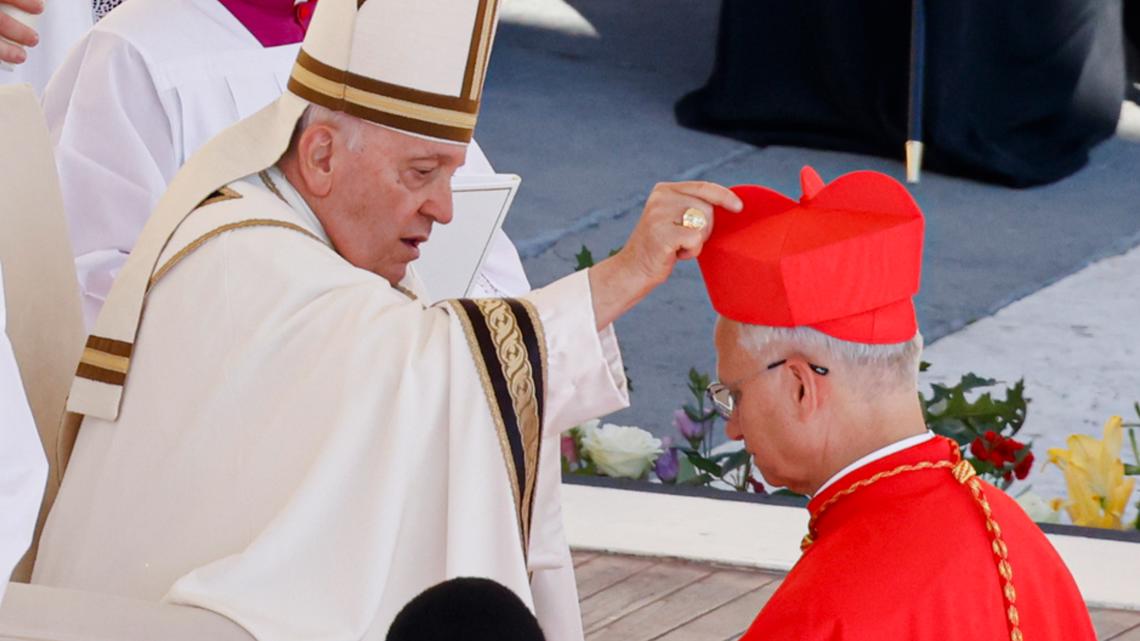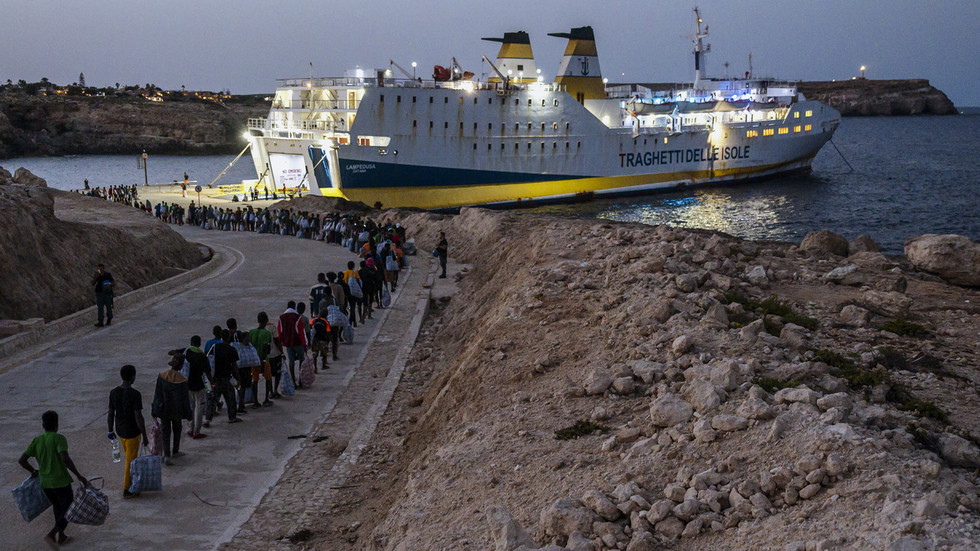The mercenary rebellion that shook Russia was merely “a minor trouble,” the foreign minister said on Friday, warning the West not to think that President Vladimir Putin’s grip on power had weakened, even as the Kremlin continued to move against the leader of the mutiny.
Speaking at a news conference, Foreign Minister Sergey Lavrov asserted that Russia would emerge “stronger and more resilient” after the short-lived putsch last Friday and Saturday by Yevgeny Prigozhin and his Wagner group troops, who have played a vital role in Russia’s invasion of Ukraine. Lavrov dismissed the rebellion, which drove an armored column to within 125 miles of Moscow before turning back, as insignificant.
“If someone in the West has doubts about this, then that’s their problem,” he said. He added that the Western nations backing Ukraine were misguided if they hoped that “the facade of the Russian government had cracked.”
Sign up for The Morning newsletter from the New York Times
The Kremlin has insisted repeatedly that the uprising had no support and the nation was united behind Putin, who has described the episode as an important test that Russia had emphatically passed. But it is clear that the government is still cleaning up its aftermath.
The fates of two key figures remain unclear: Prigozhin and Gen. Sergei Surovikin, a top military commander seen as being aligned with Prigozhin. Neither has been heard from publicly since last weekend, their whereabouts have not been confirmed, and it is not clear what degree of freedom, if any, either man still enjoys.
The government of Belarus, Putin’s closest international ally, said on Tuesday that Prigozhin had gone into exile there, but there has been no independent corroboration of that. Russian authorities have apparently agreed not to prosecute Prigozhin or his troops, in return for his decision to stand down last Saturday without a major armed clash.
U.S. officials say that Surovikin, commander of Russian air forces and formerly commander of the war effort in Ukraine, probably knew in advance about the mutiny, and appears to have been detained. The Russian government has refused to comment. Some pro-war Russian bloggers have reported that he was arrested, while others have denied it.
William Burns, the CIA director, called the head of Russia’s foreign intelligence service after last week’s rebellion to assure the Kremlin the U.S. had no involvement, according to a U.S. official, one of several contacts delivering that message. The CIA declined to comment on Burn’ call, which was earlier reported by The Wall Street Journal.
The Biden administration has taken pains to emphasize to Russian officials that it had no hand in the uprising, and views it as an internal Russian matter. In public comments, Lavrov has appeared to accept those explanations.
Russia’s state media regulator has blocked a news website controlled by Prigozhin, and on Friday, a Russian newspaper, Kommersant, reported that several others had been blocked as well. Russian security services have reportedly raided the offices of other Prigozhin holdings.
Putin, whose government had long denied any connection to Wagner — as did Prigozhin until last year — admitted this week that Kremlin contracts had supported the private army. He said there would be an investigation of those contracts to punish graft and profiteering.
The Kremlin has moved this week to take control of Wagner mercenary forces in other countries, including Syria and the Central African Republic, where they have formed the brutal spear point of Russian support for repressive governments, often while securing lucrative concessions in natural resources. Russian diplomats have rushed to assure their allies of continued Wagner backing.
John Kirby, spokesman for the U.S. National Security Council, said Friday that Wagner, working for the military junta that rules Mali, had engineered the departure of a United Nations peacekeeping force in that country to further its own business interests. Weeks ago, the junta asked the peacekeepers to leave “without delay,” and on Friday, the U.N. Security Council voted to withdraw them.
It is unclear what will become of Wagner troops who have been fighting in Ukraine, an important part of the Russian war effort that has given Prigozhin a robust following in Russia. They have been ordered to sign contracts by Saturday with the Defense Ministry, putting them under the control of the regular Russian military, if they are to remain part of the war.
That order spelled the end of Wagner as an independent force in Ukraine, weakened Prigozhin as a political force, and showed that he had lost his long-running power struggle against the leaders of Russia’s military establishment. He said it also prompted his rebellion, which he insisted was aimed at those military leaders, not at Putin.
President Alexander Lukashenko of Belarus said this week that he would be willing to take in Wagner fighters who are unwilling to join the Russian military, and offered them an abandoned military base. But it is unknown how many will accept the offer.
New satellite imagery from Thursday and Friday, analyzed by The New York Times, shows more than 250 tents, enough to house thousands of troops, have been erected in the past five days at an unused base. The Times first reported Wednesday on rapid construction there. The images show no sign so far of a major troop presence.
The relocation of Wagner fighters to Belarus could create a new threat to Ukraine on its northern border, and President Volodymyr Zelenskyy on Friday ordered defenses there strengthened.
c.2023 The New York Times Company
















